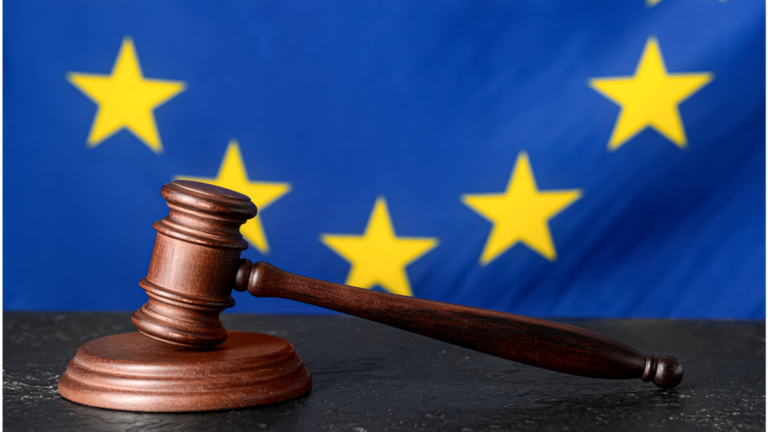With its first Artificial Intelligence Act the European Union (EU) has reached a pivotal moment in technological governance by securing a deal on the world’s first comprehensive artificial intelligence (AI) rules.
This agreement paves the way for a legal framework that addresses AI’s transformative yet potentially dangerous impact on society.
The recent agreement, achieved after marathon discussions, marks the EU as the first significant global power to set explicit rules for artificial intelligence usage.
This artificial intelligence act is a significant leap towards legal oversight in a field teeming with promise and peril.
And I am sure this Artificial Intelligence Act will a talk of the town in The AI Summit New york 2023
Technical Work Ahead
While the political agreement is a milestone, there’s a recognition that crucial technical details still need to be ironed out.
The deal represents the start of a process to finalise these aspects, which are critical for the AI Act’s effectiveness.
The legislation covers foundation models like ChatGPT, requiring them to comply with transparency obligations.
These AI systems must document their technical processes, adhere to EU copyright laws, and detail their training content.
Moreover, the Foundation models posing systemic risks will undergo thorough scrutiny, including risk assessments, incident reporting, cybersecurity measures, and energy efficiency reports.
One of the most contentious issues, using AI in facial recognition surveillance, reached a compromise.
While there were calls for a complete ban due to privacy concerns, exemptions have been negotiated for serious crimes like terrorism or child sexual exploitation.
Also, Deep fakes and spreading false news represent some of AI technology’s most challenging and concerning aspects.
Penalties and Enforcement
The AI Act proposes steep penalties for non-compliance, with fines of up to 35 million euros or 7% of a company’s global turnover.
This underscores the EU’s commitment to strict enforcement of these regulations.
The EU’s approach may set a powerful precedent for other nations grappling with AI regulation.
As other countries like the U.S., U.K., and China propose their frameworks, Europe’s comprehensive rules could serve as a potential blueprint.
Industry and Rights Groups’ Responses
The rules have been met with mixed reactions. While some in the industry see them as burdensome, digital rights groups argue that the Act does not go far enough in protecting against harm caused by AI systems.
Here are some of the insights on possible pros and cons
Pros of the EU artificial intelligence act
Setting Global Standards: The EU’s initiative is seen as a pioneering effort to set global standards in AI regulation. It’s a proactive approach to managing the ethical and societal implications of rapidly advancing AI technologies.
Consumer Protection and Transparency: The legislation protects consumers from potential AI-related harms. It mandates transparency in how AI systems like ChatGPT operate, which is crucial for consumer trust and safety.
Risk-Based Approach: By categorising AI systems based on risk levels and tailoring regulations accordingly, the EU addresses the varying degrees of potential harm and benefits of different AI applications.
Innovation Within Boundaries: The legislation aims to balance innovation with ethical considerations, ensuring that AI development occurs within a framework that respects human rights and societal values.
Global Leadership in Tech Ethics: The EU’s move positions it as a leader in tech ethics, potentially influencing other regions to adopt similar responsible approaches to AI governance.
Cons of the EU artificial intelligence act
Potential Overregulation: Some industry groups argue that the legislation might stifle innovation by imposing burdensome regulations. This could hinder the growth and competitiveness of European AI companies.
Technical and Practical Challenges: The complexity of AI technologies might make implementing some aspects of the legislation challenging. Ensuring compliance, especially for rapidly evolving AI models, could be technically demanding.
Insufficient Protections: Digital rights groups and some civil society organisations feel the legislation doesn’t go far enough in protecting individuals from the more insidious uses of AI, such as pervasive surveillance and data exploitation.
Economic Implications: The hefty fines and strict compliance requirements might disproportionately affect smaller companies and startups, potentially impacting the tech ecosystem’s diversity and dynamism.
Global Fragmentation: While the EU aims to set an international standard, there is a risk of regulatory fragmentation if other major players like the U.S. and China adopt significantly different approaches to AI regulation.
Future Prospects
The Artificial Intelligence Act is expected to be formalised by early next year and come into full effect by 2025. It represents a balancing act between fostering innovation and making sure the the ethical use of AI technologies.
The EU’s tentative agreement on artificial intelligence act regulation signifies a significant stride in addressing AI’s ethical and societal implications. As these rules move towards formal adoption and implementation, they will likely influence global AI policy and shape the future of responsible AI development. The world will be watching closely as Europe leads the way in establishing a legal framework for one of the most transformative technologies of our time.
